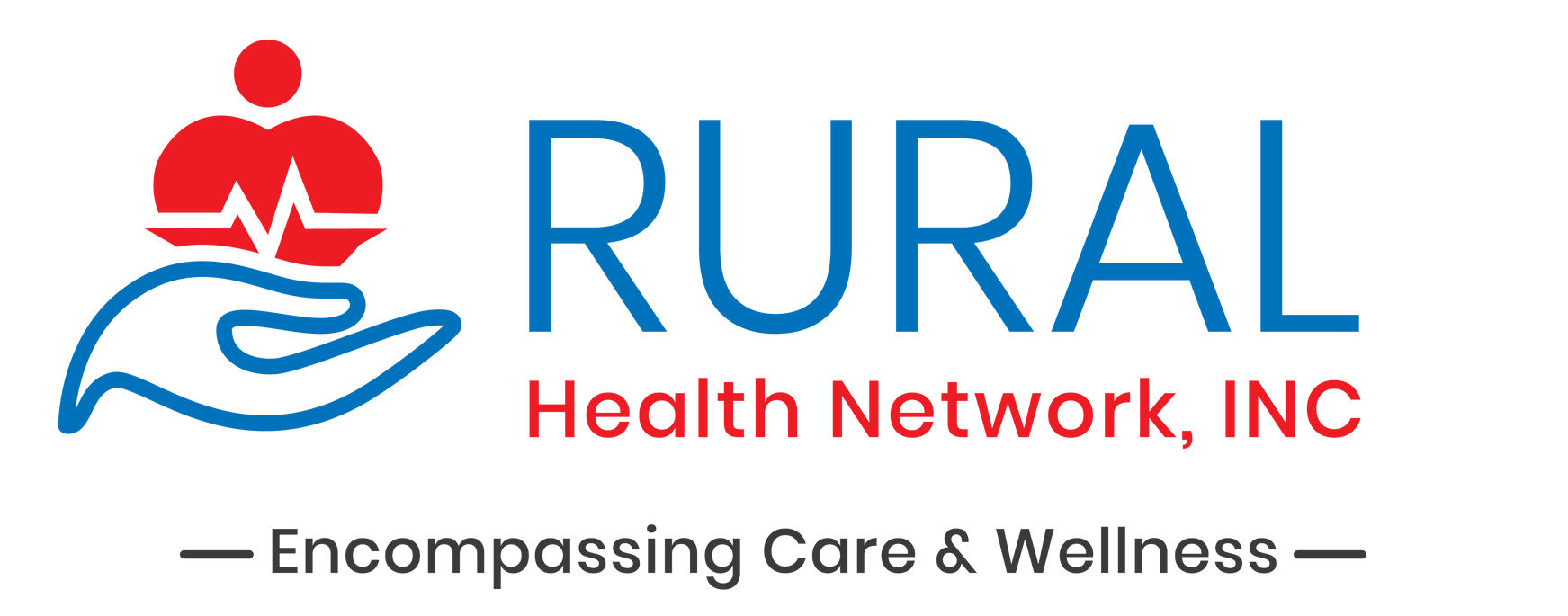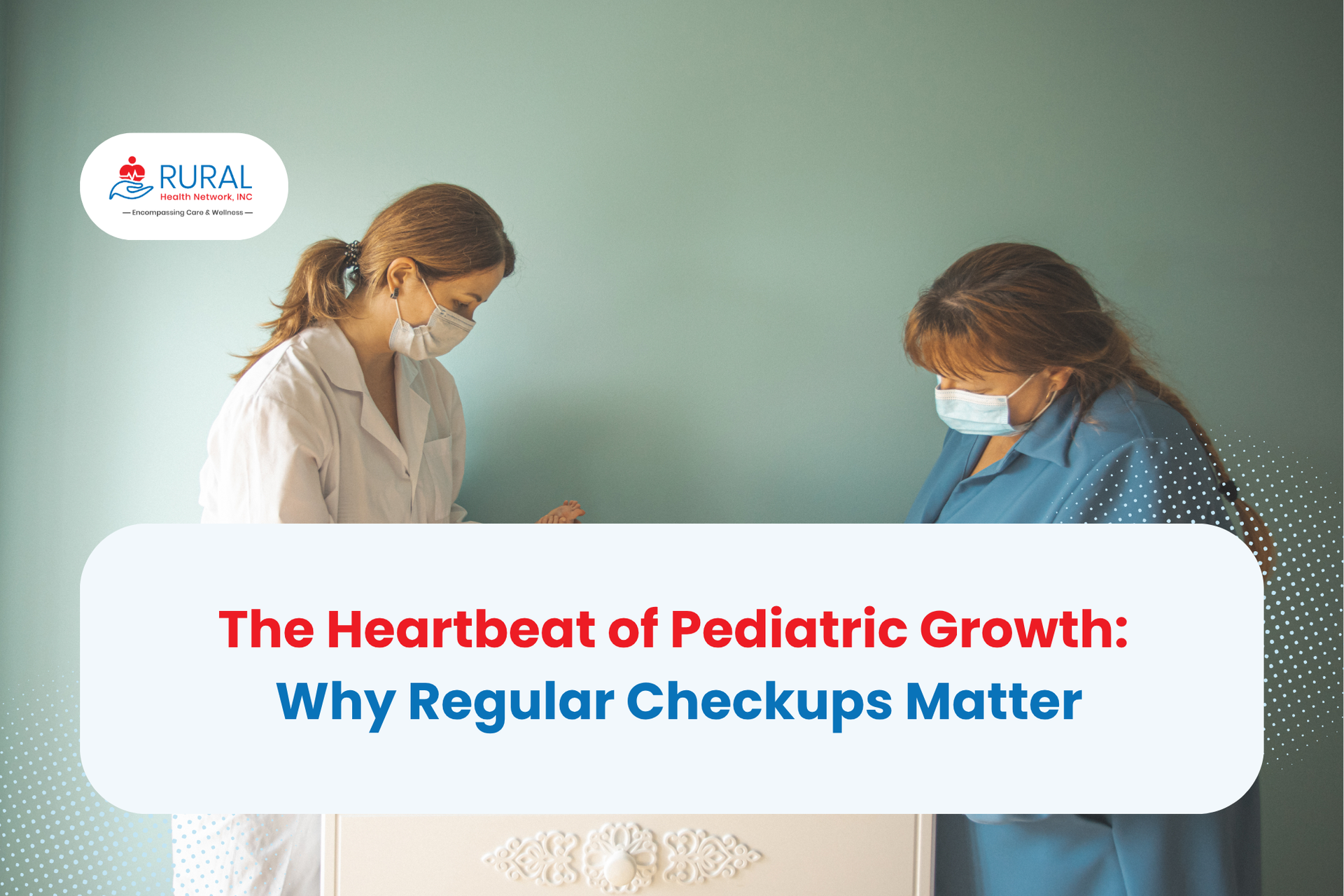Respiratory Illness Guide: How to Identify Flu, RSV, and Bird Flu

You wake up this morning with a scratch in your throat, an aching part of your body, and a slow cough creeping in. As the symptoms worsen, you wonder if this is just a cold, the flu, or a respiratory illness that requires urgent attention.
Every year, the flu season arrives in the fall and peaks during the winter months, bringing with it the spread of respiratory syncytial virus (RSV) and bird flu. These three illnesses share similar signs and symptoms, making it difficult to determine which one you have, but each carries distinct risks, complications, and treatments.
For those in rural communities, where the nearest clinic may be miles away, recognizing the warning signs early can make all the difference. Acting fast can prevent complications and help protect those around you.
At
Rural Health Network, we’re committed to helping rural residents get the information and support they need to stay healthy. With that in mind, let’s take a closer look at these three illnesses, their symptoms, and how to protect yourself and your loved ones.
Stay Safe and Healthy This Flu Season
Flu vs. RSV vs. Bird Flu: What You Need to Know
It’s easy to assume your cough and runny nose are just signs of a common cold, but they could actually signal something more serious. Flu, RSV, and bird flu share similar symptoms but have unique characteristics, risks, prevention strategies, and treatments.
Let’s break down the key differences.
Flu (Influenza)
Influenza, or the flu, is a highly contagious respiratory illness caused by influenza A and B viruses. It spreads through droplets from coughs, sneezes, or contact with contaminated surfaces.
Symptoms
Flu symptoms tend to hit quickly and may include:
- Fever or chills
- Cough
- Sore throat
- Runny or stuffy nose
- Muscle or body aches
- Fatigue (tiredness)
- Headache
- Shortness of breath (in severe cases)
Some people, especially children, may experience vomiting or diarrhea.
Who Is at Risk?
While the flu can affect anyone, some people are more vulnerable to severe illness. High-risk populations include:
- Adults 65 and older
- Children under 5
- Pregnant women
- Individuals with asthma, heart disease, or diabetes
Prevention & Treatment
Effective flu prevention starts with getting the influenza vaccine once a year to protect you against common strains. Taking antiviral medications early can also shorten the duration of the respiratory illness and reduce complications. Prioritizing rest, hydration, and over-the-counter treatments further supports recovery.
Respiratory Syncytial Virus (RSV)
Respiratory syncytial virus (RSV) is a highly contagious infection that targets the lungs and airways. It is transmitted through direct contact with respiratory droplets or contaminated surfaces.
Symptoms
RSV symptoms often mimic the flu or a cold and may include:
- Runny nose
- Decrease in appetite
- Coughing and sneezing
- Fever
- Wheezing or difficulty breathing
In severe cases, RSV can cause pneumonia or bronchiolitis, especially in young children.
Who Is at Risk?
Certain groups are more vulnerable to severe RSV complications, including:
- Infants under 12 months
- Premature babies
- Adults 65 and older
- Immunocompromised individuals, such as those with chronic lung disease
Prevention & Treatment
While no vaccine is widely available for RSV, a monoclonal antibody treatment is available for high-risk infants. RSV prevention strategies include frequent handwashing, avoiding close contact with sick individuals, and disinfecting surfaces. Treatment mainly involves supportive care, such as hydration, fever management, and oxygen therapy in severe cases.
Bird Flu (Avian Influenza)
Bird flu, or avian influenza, is named such because primarily, the infection affected birds. While rare, human cases of avian influenza have been reported, often linked to direct contact with infected poultry.
Symptoms
Bird flu symptoms vary in severity and may include:
- Fever and chills
- Cough
- Shortness of breath
- Muscle aches
- Sore throat
- Eye infections (conjunctivitis)
- Severe respiratory distress in advanced cases
In some cases, bird flu can lead to life-threatening complications such as pneumonia, organ failure, or death.
Who Is at Risk?
Those at higher risk of infection include:
- People in direct contact with infected birds
- Individuals with compromised immune systems
- People exposed to live bird markets or contaminated environments
Prevention & Treatment
Bird flu prevention involves avoiding contact with infected birds, ensuring proper poultry handling, and wearing protective gear when working in high-risk environments. While antiviral medications can help treat bird flu, there is no approved vaccine for this respiratory illness.
Know the Difference: Flu, RSV, and Bird Flu at a Glance
| Flu | RSV | Bird Flu | |
|---|---|---|---|
| Cause | Influenza virus | Respiratory syncytial virus | Avian influenza virus |
| Transmission | Respiratory droplets | Direct contact and droplets | Contact with infected birds |
| Primary Symptoms | Fever, cough, fatigue | Runny nose, wheezing, cough | Fever, cough, respiratory distress |
| Risk Groups | Elderly, young children, people with chronic conditions | Infants, elderly, immunocompromised individuals | Poultry workers, people in close contact with birds |
| Prevention | Flu vaccine, hand hygiene | Hand hygiene, avoiding sick individuals | Avoiding contact with infected birds |
When to Seek Medical Attention
See a doctor as soon as possible if you or someone you know experiences:
- Difficulty breathing or shortness of breath
- Persistent high fever
- Severe dehydration (dizziness, confusion, lack of urination)
- Worsening symptoms after initial improvement
For those in rural areas, telemedicine services and local clinics can provide guidance when immediate in-person care is not an option.
Why Early Recognition Is Critical This Flu Season
The Centers for Disease Control and Prevention (CDC) recently reported that this flu season is shaping to be one of the worst in recent history. Cases are surging to levels not seen in 15 years. For rural communities, where healthcare access is already limited, the stakes are even higher. Delayed diagnosis and treatment can turn a manageable illness into a life-threatening emergency.
The Benefits of Early Symptom Recognition
- Faster Treatment – Identifying symptoms early allows quicker intervention and better health outcomes.
- Reduced Hospital Overcrowding – Understanding which illness you may have can prevent unnecessary ER visits and free up resources for severe cases.
- Protection of Vulnerable Populations – With higher proportions of elderly and high-risk individuals in rural areas, preventing the spread of respiratory illnesses is paramount.
This flu season is relentless, but early recognition is a powerful defense. Knowing the signs and acting quickly can help protect yourself, your loved ones, and your community.
Breathe Easy with Expert Guidance from Rural Health Network

It’s easy to mistake flu for RSV or bird flu, but learning the key differences can help you make the right decisions for your health. In rural communities, where medical care isn’t always right around the corner, recognizing symptoms early and knowing when to seek treatment can be the difference between severe illness and a faster recovery.
Remember, you don’t have to figure it out alone.
Rural Health Network
offers expert guidance, trusted resources, and access to care to keep you informed and healthy all year long.
Your health is in your hands—take precautions, know the signs, and breathe easy this flu season!
Don’t Let the Flu Derail Your Plans This Season










